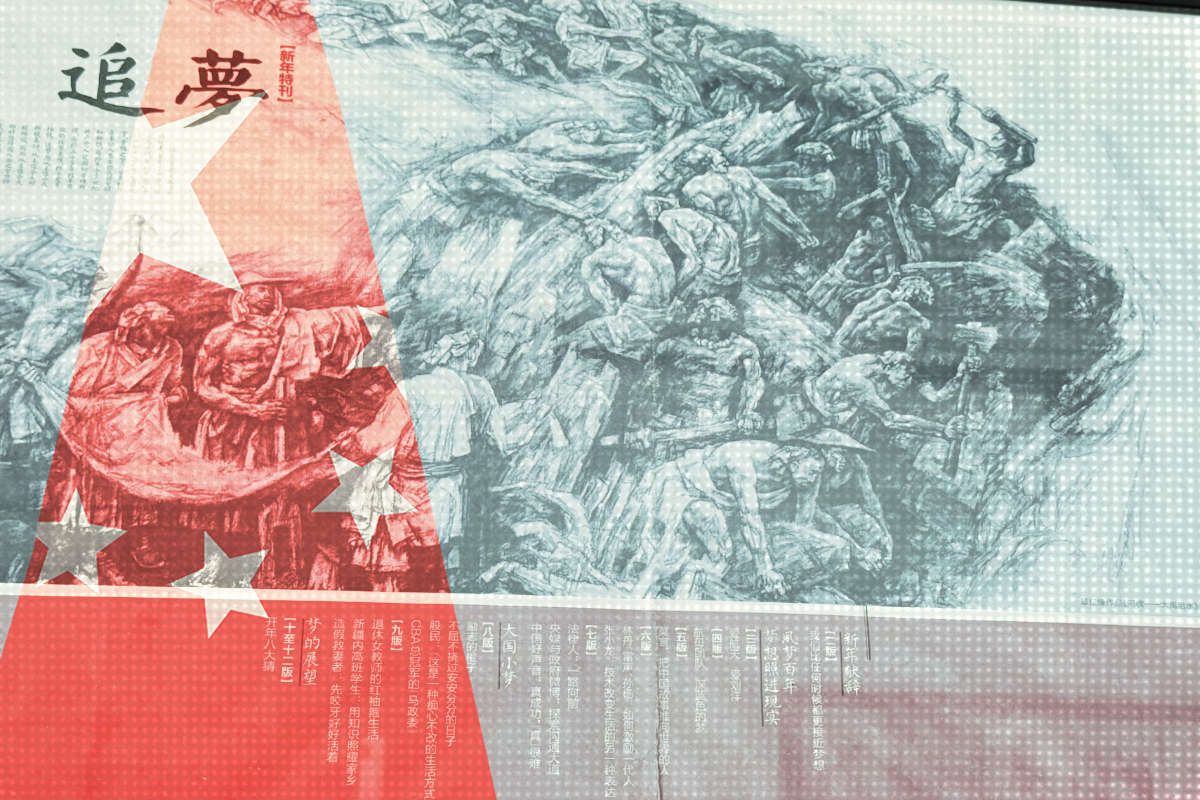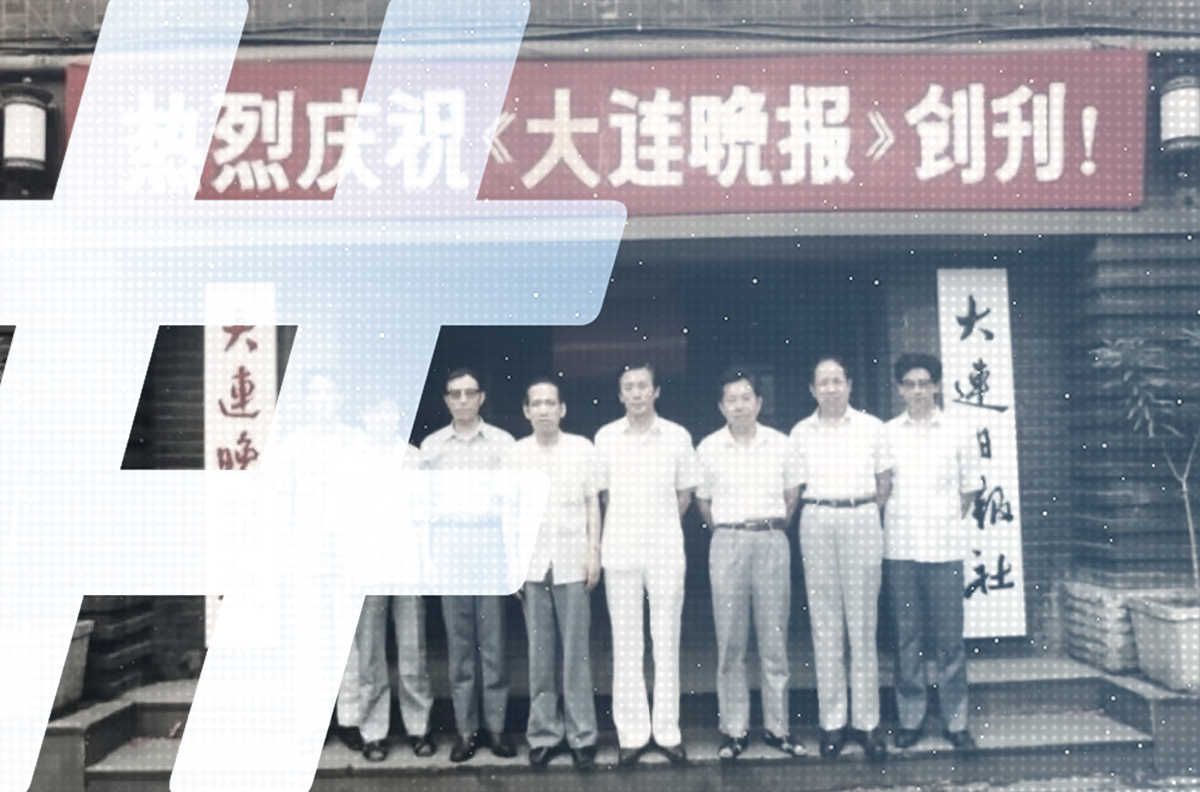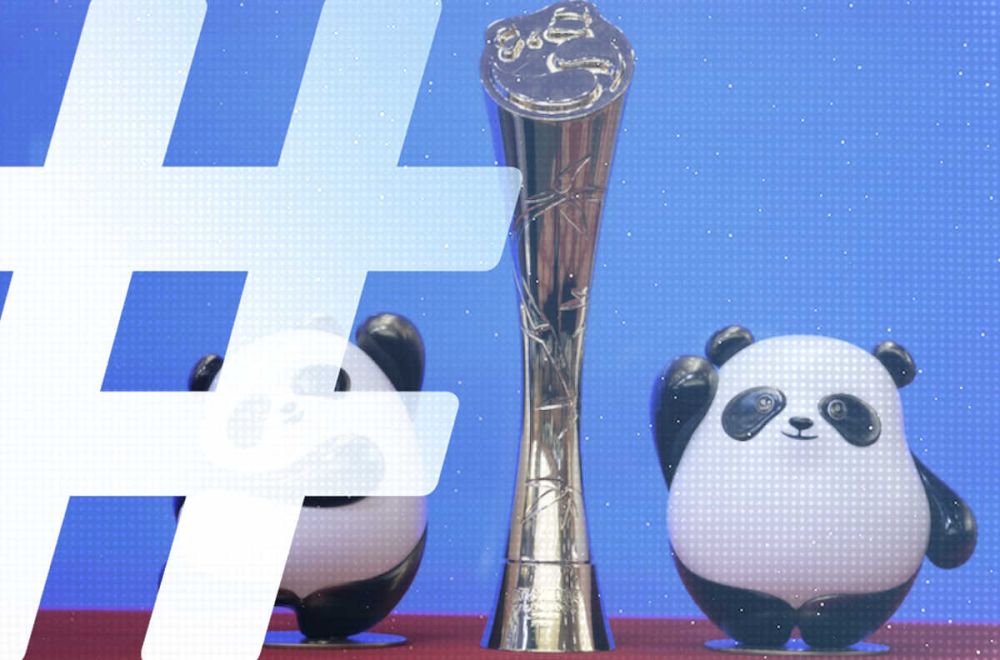
The Golden Panda Awards trophy poses between a pair of festival mascots this month in Chengdu.
When it comes to major international film awards, Rotterdam has its Tiger, Berlin has its Golden Bear, and for decades running the most iconic film award in the Chinese-speaking film world has been Taiwan’s Golden Horse. Today, in a bid to expand its global cultural influence, China will award its own animal-themed film prize in the western city of Chengdu. Say hello to the Golden Panda.
Winners of the biennial prize, awarded in four categories (film, television, documentary, and animation), will take home gleaming trophies, each “a cute panda engraved on the top of bamboo joints, which represents the concept of steadily rising quality,” according to the state-run Global Times.
Unlike its namesake, a creature that reproduces with notorious difficulty, the Golden Panda seems to have been born precipitously. With no signaling of plans on the global festival circuit in 2022, the host of the event, the People’s Government of Sichuan Province, announced the prize only on March 25. The narrow application window closed just one month later.
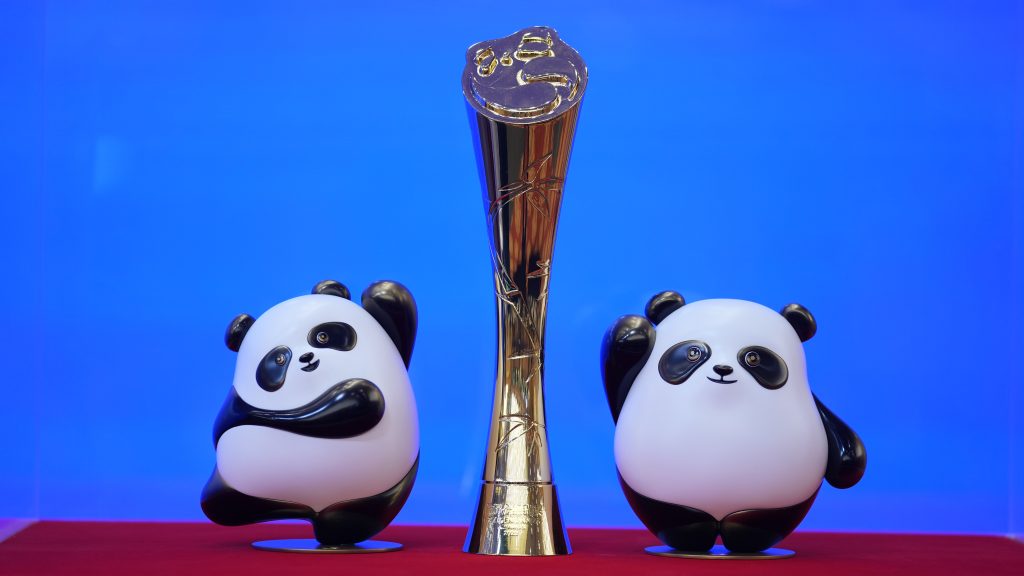
In May and June, China tried to generate excitement internationally by coordinating launch events in Hong Kong, Paris, and Rio de Janeiro. The buzz, however, barely reached a murmur. None of the world’s major film industry publications seem to have taken notice, and as the festivities kick off this week, mentions of “Golden Panda” or “Panda d’Or” are to be found only in a spate of enthusiastic reports from Chinese state media — discounting ubiquitous online listings for Chinese restaurants from French Polynesia to Simi Valley.
Why are you hearing about the Golden Panda Awards from the China Media Project, and not from Empire or The Hollywood Reporter?
Officials at Center Stage
Haste and lack of professionalism in the planning is likely one important reason for the lack of industry buzz. According to domain registration data, the official website of Golden Panda Awards was created on February 7 this year, which suggests plans were hurried through.
Unlike its namesake, a creature that reproduces with notorious difficulty, the Golden Panda seems to have been born precipitously.
Look more closely at the promotional events in Hong Kong, Paris, and Rio de Janeiro, and you also spot a gaping issue of perception. No filmmakers were seemingly involved, deepening the sense that this was about neither audiences nor auteurs, but rather about the Chinese state. According to People’s Daily Online, the event in Brazil was addressed by Tian Min (田敏), China’s consul general, as well as Fu Siquan (傅思泉), vice minister of Sichuan’s propaganda department. There was a lot of talk about “promoting cultural exchange in film and television.” But how many Brazilian filmmakers were present? Zero.
In its June report on the promotion events in Hong Kong and Paris, the official Sichuan Daily newspaper noted only that the Hong Kong event had included Lu Xinning (卢新宁), the number-two official in the central government’s Liaison Office, along with Hong Kong’s culture and tourism chief, Kevin Yeung (杨润雄), who has been one of the most vocal proponents in the SAR of Xi Jinping’s external propaganda catchphrase, “telling China’s story well.” In Paris, one of the world’s great cities of cinema, the planners managed to score attendance from UNESCO’s assistant director-general for culture, Ernesto Ottone Ramirez — who, incidentally, is Chilean — but not from a single filmmaker, apparently.
Perhaps more damningly on the planning side, the June report mentioned that “prize selections will take place from September 23-24.” Only on August 26, three weeks ago, was it publicly reported in Chinese state media that “the prize selections for the Golden Panda Awards will take place from September 19-20.” Come again, festival organizers?
On the professional film circuit, such a four-day shift in the schedule announced less than a month before the event would be humiliating news. In this case, it shows us that the organizers never seriously cared for international publicity, not in the professional sense. The publicity needed internally — to score points with higher-ups for advancing China’s “international communication” — was something officials in Sichuan were always at liberty to manufacture on their own.
Starring Sichuan’s Propaganda Department
In fact, Sichuanese official coverage of the event swings another illuminating beam of light onto the nature of the Golden Panda Awards. Aside from a smattering of output in English from CGTN, the international broadcasting arm of the state-run China Central Television, most all the videos available across social media platforms come from “Sharing Sichuan,” a YouTube account whose motto is “experiencing China via Sichuan eyes.”
“Sharing Sichuan” is one of several official accounts on overseas social media operated by something referred to as the Sichuan International Communication Center (SICC). As it happens, this is a new office under the provincial propaganda department and the CCP’s official Sichuan Daily that is meant to consolidate media resources to more effectively “build an international communication matrix, and continuously improve patterns of large-scale foreign propaganda.” The mandate, laid out in late 2020 as part of the province’s response to China’s 14th Five-Year Plan, includes using “major economic and cultural exchange events to assist in enlarging propaganda and promotion, vividly telling the Sichuan chapter of China’s story.”
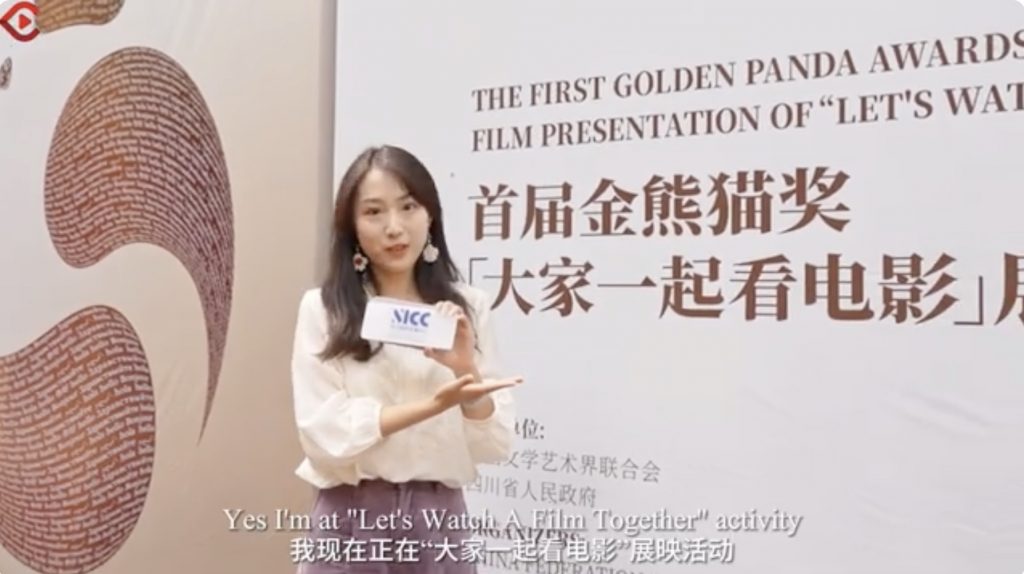
This language puts the Golden Panda Awards in their proper context, as an event intended primarily to advance Sichuan’s external propaganda objectives. Speaking to the Huaxi Metropolis Daily, a major tabloid under Sichuan Daily, China Film Critics Association President Rao Shuguang (饶曙光) indicated as much when he said the Golden Pandas were “an important way to expand the international influence of Chinese films,” and “achieve better international dissemination.”
But the language also clues us into an important overarching trend in CCP propaganda, namely the mobilization of provincial media groups to serve the broader external propaganda goals of the party-state. Sichuan’s SICC is one of at least 11 such “international communication centers” (国际传播中心) formed since 2020. Six of these have been formed only since May of this year, responding to instructions on “advancing propaganda and ideology work” laid out by Xi Jinping in 2016 (and most recently in May 2021).
Over the summer, these ICCs — as you will hear us call them here on out at CMP — created a mutual association to better coordinate work nationwide. The process of integrating the ICCs both horizontally and vertically (with central state media) is clearly a strategy in the CCP’s remaking of its overall propaganda matrix.
As is often the case with China’s efforts at international communication, the results are mixed, largely because of shortcomings in planning and professionalism coded politically into the DNA of such efforts — their “red genes,” to appropriate a CCP catchphrase.
The Golden Panda Awards . . . . [are] intended primarily to advance Sichuan’s external propaganda objectives.
One clear example of the sub-par is the SICC’s recruitment of foreign exchange students in Sichuan to comment on the Golden Panda Awards in an effort to demonstrate the event’s international nature. This ethically problematic tactic is not only common in China, but in some cases has been formalized through cooperation agreements such as that struck earlier this year between the CCP-run China Media Group and Jiangxi’s Nanchang Aviation University, which defined foreign students as “resources” for external communication.
Now that ICCs are getting off the ground, tasked in some cases with regional work, such as in Southeast Asia (see my recent piece in Commonwealth), we can expect to see more creative approaches to the CCP’s external propaganda, through social media accounts outside China that are branded non-transparently (“Center” and “C-Video” are two more SICC labels).
How Civilized You Are!
One final elucidating note on the Golden Panda Awards deals with their framing as an event of civilizational proportions, in keeping with China’s focus since last year’s 20th National Congress on “civilization” as a source of leadership legitimacy at home and soft power appeal abroad [See “China’s ‘Xivilizing’ Mission“].
The Golden Pandas, we are told by the Global Times, “are committed to promoting exchanges and mutual learning among global civilizations.” They are, says the original announcement for the prize, about “building a community of shared destiny for mankind” and promoting “civilizational exchange.”
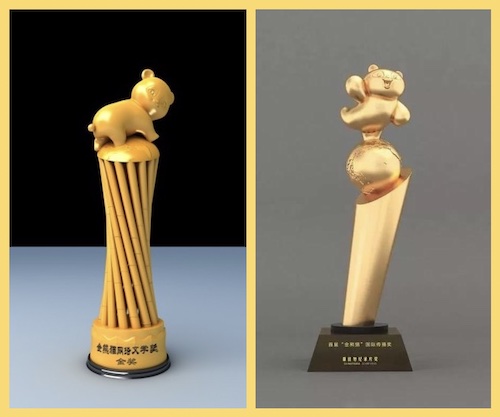
This language places the festivities happening today in Chengdu solidly within the context of legitimacy formation for Xi’s unprecedented third leadership term. It is no coincidence that the Golden Pandas were initiated just five days after Xi Jinping’s keynote speech at the CCP’s Dialogue with World Political Parties in Beijing, during which he unveiled his Global Civilization Initiative (GCI).
The focus on “civilization” might seem just to put a grandiose patina on that simpler word, “culture.” But for the CCP in the present political moment, it is so much more, wrapped up in the recent claim that Xi Jinping’s “New Era” marks an historic culmination, the creation of a “new form of human civilization.” The Party’s general secretary stands with his feet planted on two great summits — the first the apex of China’s “excellent traditional culture,” the second the acme of Marxism for the 21st century. This, at present, is the CCP’s recipe for legitimacy, its latest confection: a civilization to make all Chinese proud and encourage the world to look on in awe.
As CGTN declares in its corny promotional video for the Golden Panda Awards, narrated in the distinctive baritone of Chinese state television, and cut in with shots of Times Square and the Eiffel Tower: “This is a bridge for mutual learning among civilizations. Communicate with other civilizations and embrace the world.”
During a collective study session of the Politburo on propaganda and ideology in May 2021, Xi Jinping reminded Party leaders that “telling China’s story well” meant that the country’s image should be “trustworthy” (可信) and “honorable” (可敬), but also “lovable” (可爱).
The question is how to make lovable happen. And the answer is always: gild the panda.


